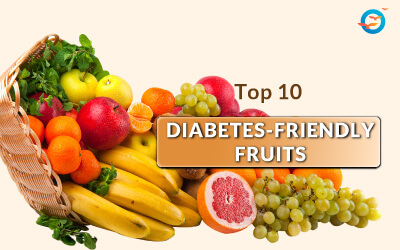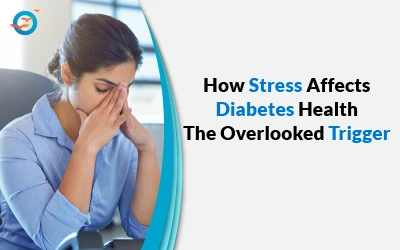Keto diets: Good or Too Good to be True?

Table of Content
1. Keto diets
4. Can keto cause health problems?
5. Biggest Risk Factor of Keto Diet
5.2 Liver problems:
5.3 Kidney issues:
5.4 Gut ill-health:
5.5 Mental issues:
5.6 Period problems:
Keto Diet Plan
Eggs, bacon, ham, cheese, paneer, fried chicken, mutton, and NO GREENS!
If there ever was a diet made for lovers of fried and fatty animal food, the keto diet it is. And it delivers speedy weight loss results too. Sounds too good to be true? Unfortunately, it is. So before you load up your plate with non-vegetarian yummies,
Take a couple of minutes to read this:
If you’ve read or watched any of the many blogs and vlogs on the keto diet, you will notice one thing. They all talk about quick weight loss. People losing 8 to 10 kilos in 2-3 months. And that too gorging on the kind of foods that every traditional diet around the world warns against.
These quick results are what have made the indian keto diet plan so attractive to soon-to-be-wed partners; people heading for a class reunion, etc.
And, while it is true that high-fat diets have always proven to drop pounds quickly, there is an underlying cost that has to be paid that keto-advocates gloss over or skip completely.
What is keto?
Ketosis is abbreviated as "Keto." The keto diet, like the Atkins diet, is fundamentally a low-carb diet.It entails substantially lowering carbohydrate intake and substituting fat. This decrease in carbs causes your body to enter a metabolic state known as ketosis. It decreases blood sugar and insulin levels while shifting the body's metabolism from carbs to fat and ketones.
How keto works:
To understand how ketogenic diets deliver their amazing weight loss results and the corresponding downsides, it is necessary to understand how the Kito diet plan works. Keto diets depend on getting the body to switch from using glucose—obtained from carbohydrates—for energy, to ketones—which are produced by the liver using stored fat.
This might seem like the perfect way to drop the kilos, i.e. by burning stored fat; but, getting the liver to produce ketones is the tricky part. Because it requires you to reduce carbohydrates to almost nothing. That means no fruits, no grains, no pulses, no sprouts, no leafy vegetables! And you have to do this for a few days before the results even begin to show. In that time, even the most staunch beef eater will salivate at the mere thought of a juicy red apple. And if you’ve been brought up on a traditional diet rich in vegetables, fruits, nuts, berries, etc. the going will be extra tough.
Can keto cause health problems?
There are numerous health problems from a keto diet, and they all stem from the massive amounts of fat and animal protein you have to consume with no veg to balance the plate.
Fat is a necessary macro-nutrient, but the recommended daily allowance is 7% maximum. Keto diets place no such limit. And in fact, keto diets have been linked to increases in LDL (aka, ‘bad’) cholesterol, which is the biggest risk factor for heart disease. But that’s not
all.
Here are the Biggest Risk Factor of Keto Diet
1. Nutrient deficiencies
With no vegetables, fruit, or grains in your diet, you are depriving your body not just of carbohydrates but also critically needed micronutrients and vitamins, magnesium, phosphorus, selenium, iron, and vitamins B, C, K.
2. Liver problems
The enormous quantity of fat that the keto diet requires you to consume places a very heavy burden on the liver, which can cause dangerous liver problems. If you already suffer from underlying liver issues, keto is sure to push you over the edge.
3. Kidney issues
This is a big one. The kidneys have one major job, and that is to metabolize protein. The keto diet overloads them and it can result in renal problems. Once these crop up they are for life.
4. Gut ill-health
The absence of fiber in the diet, since high-fiber foods like grains and legumes are banned, leads directly to constipation and gut health issues. This imbalance in your gut bacteria—because bacteria too need carbohydrates to live—can lead to long-term problems including diminished mental capacity.
5. Mental issues
Anyone who has reached for that tub of ice cream for a bit of comfort has experienced the instant high that sugar brings—not that this article is pushing sugar. But it is important to understand that this release comes from the brain when it receives the sugar hit. With low to no carbs coming in, the brain often goes into a fugue-like state which can cause confusion and irritability.
Many people who come to FFD and who have done the keto diet to try and control their sugar report drastic mood swings from irritability and low impulse control to even homicidal and suicidal feelings. Long-term deprivation of carbohydrates results in problems like low bone density, risk of cardiovascular diseases, and sexual dysfunction as well.
6. Period problems
The lack of nutrients, carbohydrates, and quick weight loss often trigger menstrual problems as well. Eventually, these can lead to PCOD/PCOS.
The idea of a high-fat diet is itself contrary to nature, and diabetics—the population that this diet aims at helping—are ironically the ones most in danger from the diet.
There are many healthier ways to lose weight and keep it off.

